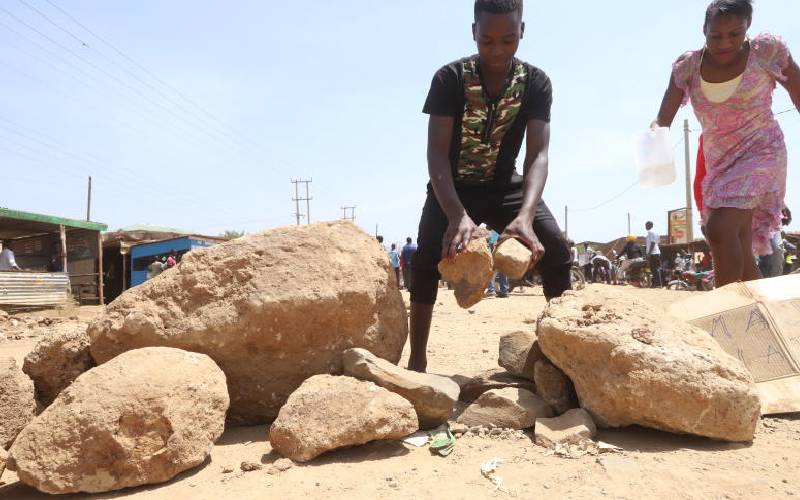×
The Standard e-Paper
Home To Bold Columnists

Youths barricade Mamboleo-Chemelil road at Mamboleo centre in Kisumu County. Protesters who get violent will be punished if new bill sails through. [File, Standard]
During elections, businessmen and ordinary citizens usually complain of harassment from protesters who destroy property, loot shops and injure pedestrians.